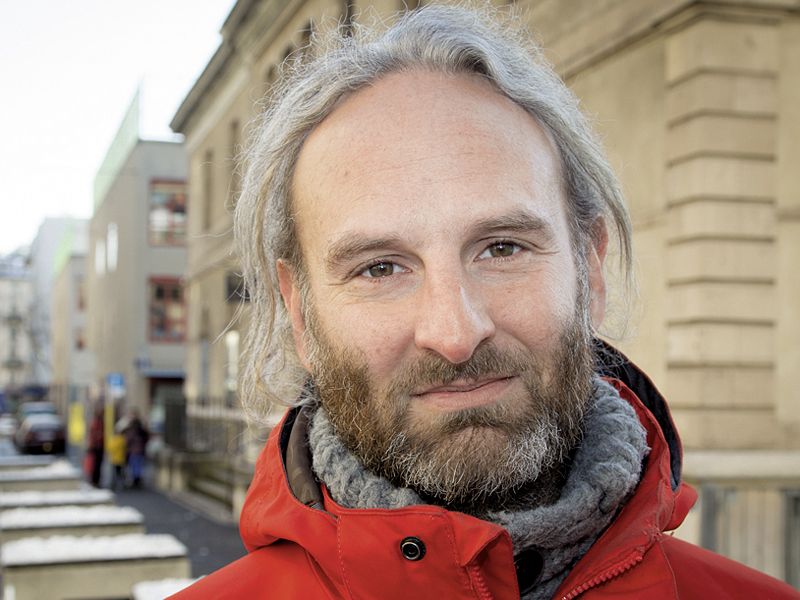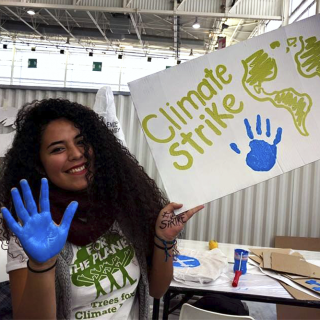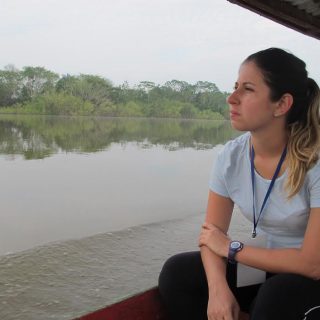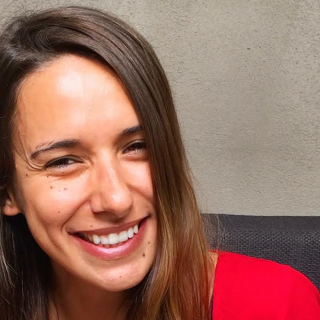Dan Acher wants you to know the names of your neighbors and local shopkeepers. More than that, he wants you to share experiences with them and use public spaces together. To Acher, this is the way to reinvent the city and do away with anonymity, individualism and distrust, and replace them with belonging, community and safety.
In 2011, he conducted a simple experiment with a friend: he took a box from the trash and wrote “Neighborhood exchange box” on it. From his window, he watched people fill the box with items they no longer wanted, and watched other neighbors take those items away. In one year, he installed 11 exchange boxes, which received over 100,000 objects. “If you put something for people in the middle of the street and they understand that they have to make it work, they will make it come to life. Because people want to be useful to their community,” he explains in his TEDX talk.
With this in mind, and with the conviction that creating spaces for interaction between people can humanize and improve the quality of life in a city, Dan Acher founded Happy City Lab in Geneva, Switzerland, in 2014. Happy City Lab combined the work of Acher’s earlier projects: two associations and a company, all founded in 2003. His strategy consists of breaking the order and routine of streets, squares and parks through artistic installations and performances that encourage interaction between people.
This is what happened with the twenty pianos he placed throughout downtown Geneva in the 2011 project “Jouez, je suis à vous” (Play me, I am yours). To the amazement of local authorities, people not only sat at the pianos to play music (or simply play), but also organized recitals and took care of the instruments, covering them on rainy days. None of the pianos were damaged. The project is still going on, now with sixty pianos scattered around the city.
Another successful initiative is Ciné Transat, open air movie screenings held during the summer in cities in Switzerland and France. These have been attended by over 90,000 people. Beyond simple movie screenings, the events provide an excuse for strangers to interact and share a fun and positive experience.
Combining creativity and technology, Acher replicated the Aurora Borealis in the streets of Geneva in the project Borealis. High potency laser beams travelled through particle clouds, creating the illusion of the Northern Lights, and they can be reproduced in any city, at any latitude.
To help inspire reinvention in other cities, Dan publicizes his installations and strategies in the media and gives lectures in universities, in addition to registering his projects in the Creative Commons so others can replicate them.
In an email interview with Believe.Earth, Dan talked about his career, the challenges faced by cities today, and his most recent creations.
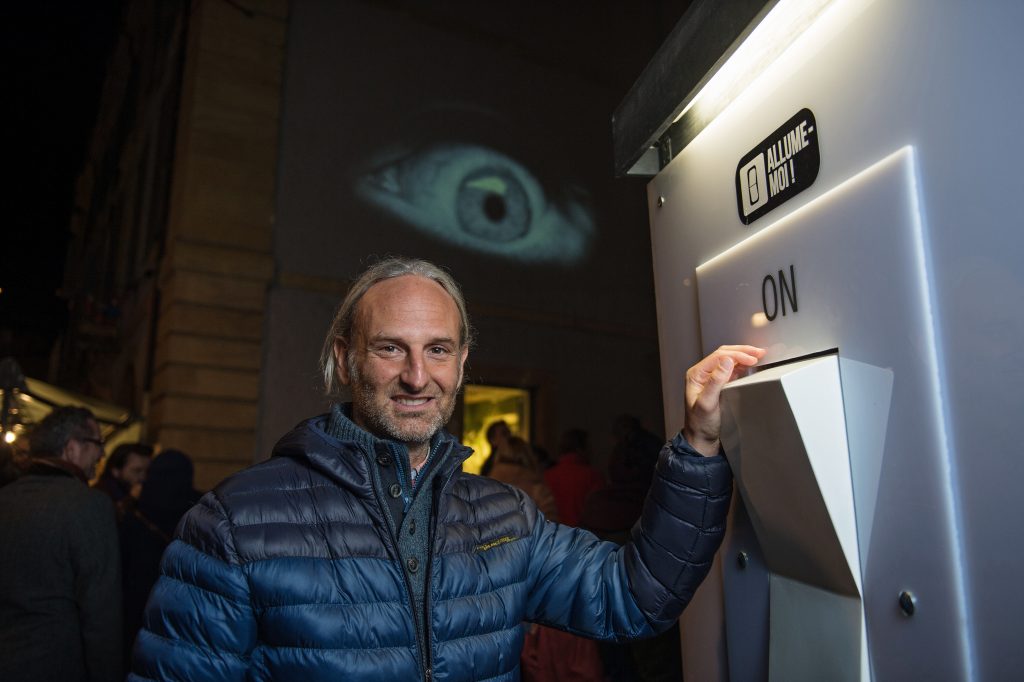
Dan Acher next to the giant light switch for his installation “Allume-moi!” [Turn me on!]: an invitation to passers-by to turn on the switch and project images of giant eyes and mouths on building facades (Dan Acher/Personal Archive)
Dan Acher (DA) – All of my projects are about human beings. How we train people to get involved in the things they feel they need or that interest them, be it in relation to the environment, their community, the healthcare system. It’s all related, anyway.
BE – What are the biggest difficulties in executing your projects?
DA – My projects push the boundaries of what is considered “normal” in a city environment, of what is expected of a citizen, what should or should not happen in a city square. I challenge this status quo, and I believe this confuses the local authorities… Until they realize the project works, that the citizens have assumed responsibility for it, have claimed it as theirs. Whenever I present a new project, it’s normal for the first reaction to be, “This will never work!”
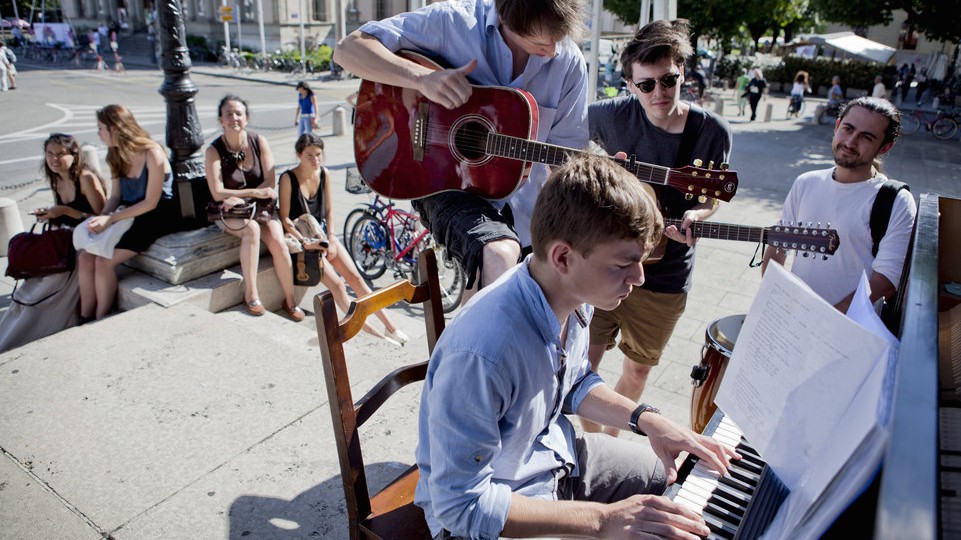
Young people hold a jam session around a piano from the “Play me, I’m yours” project on the streets of Geneva (Cat on the Roof)
BE – In your opinion, what are the biggest challenges faced by cities today?
DA – There are many challenges. What I want to work on is the growing sense of anonymity, distrust and disengagement by local citizens. People are gathering in cities like never before in search of a better life. Be it Tokyo, Stuttgart, Rio de Janeiro, Cape Town, Shangai…
By 2050, 70 percent of the world’s population will live in cities. Every type of experience and knowledge will be in one place. Students, bankers, workers, scholars, immigrants, refugees… The great mass of people from different economic and social classes, and from different backgrounds, makes a city’s new inhabitants feel alone and disconnected. Meanwhile, those who already live in urban areas face constant change in the composition of their communities and neighborhoods. This creates tensions that lead to unrest, violence, increased rates of depression and suicide, all the symptoms of a community in collapse.
BE – Your projects have been replicated in other cities in Switzerland and France. Do you take part in or follow these initiatives?
DA – I participate in some projects in other cities, but the idea is that they can spread out and go beyond the workload that my team and I can handle. We explore creative strategies using open source and creative commons to do exactly that.
BE – What have you learned from other cities and countries that have replicated your projects?
DA – I have a bachelor’s degree in social anthropology, so I know that culture can have a big impact on how a project will be perceived and how successful it will be. You have to take the local culture into account but, at the same time, you still have to challenge the local beliefs in order to create change. The ideal situation is when a project is replicated somewhere and we are able to gather feedback and understand how it can be adapted to fit different cultures.
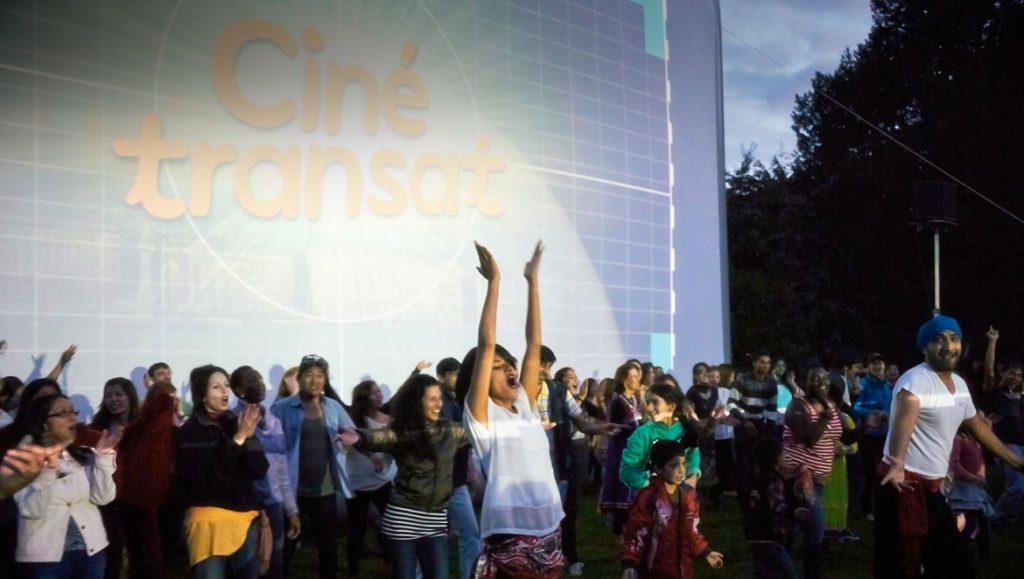
Instructors teach Indian dance during a night dedicated to Bollywood at Ciné Transat, in Geneva (Cat on the Roof)
BE – Before going into university, you went on a trip through India, Thailand, Indonesia, Australia and New Zealand. You’ve said in the past that after this experience, you asked yourself, “Where does the sense of belonging to a society come from?” and that was when you started your first urban interventions. Where do you belong?
DA – Even though I wasn’t born there, but rather in Bangkok, and my family has come from many different places, I would say I am from Geneva. I feel at home where my partner and kids are, and where I am recognized by the local community and the neighbors. I believe that, with the right environment, we can recreate this feeling anywhere.
BE – What are your upcoming projects?
DA – There are lots of things going on, but currently I am creating the Northern Lights [Borealis] in large open spaces in different parts of the world; working on a project that trains children and challenges the “adult teacher/child student” paradigm; and creating a new way to make cyclists more visible at night on college campuses.
Dan Acher is an Ashoka fellow. Ashoka is a worldwide organization present in 84 countries and leads a movement in which any individual can be responsible for positive social transformation.
